CategoryNew lifestyles and design
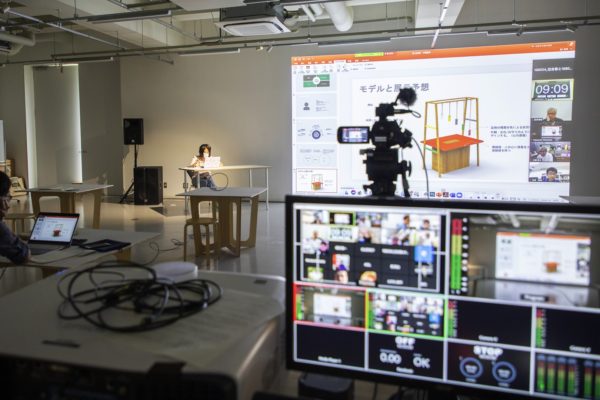
Our Thoughts on the Coronavirus Pandemic
Akita University of Art started the 2020 school year with the genuine question of how to proceed with education and research during the ongoing Coronavirus (COVID-19) pandemic: how to look at the pandemic beyond the purely negative light of the current moment, and view it from a more neutral perspective, as a phenomenon which has been repeating throughout history. How have humans behaved in the face of biological and environmental change? And what are the implications of Akita University of Art’s efforts? This may sound a bit dramatic, but what kind of ingenuity can be achieved by looking at the social situation we are facing now as a point on […]
Read More2021.7.5

Support for Distance Learning and Management of New Degree Programs at the University of Tsukuba
The University of Tsukuba launched the New Coronavirus Infectious Disease Risk Response Team in January 2020 and compiled countermeasures for large-scale gatherings at the end of February. As a result, the decision was made to review the graduation ceremony’s operation method and cancel the entrance ceremony. A parallel task force was established to deal with the new semester. The task force discussed how to operate the educational organization from April onward, especially at what stage to start the new semester and how students and faculty members should respond to non-face-to-face classes. Since the university-wide comprehensive contract for Microsoft Office 365 was already in operation, we decided to use Microsoft Teams […]
Read More2021.7.5
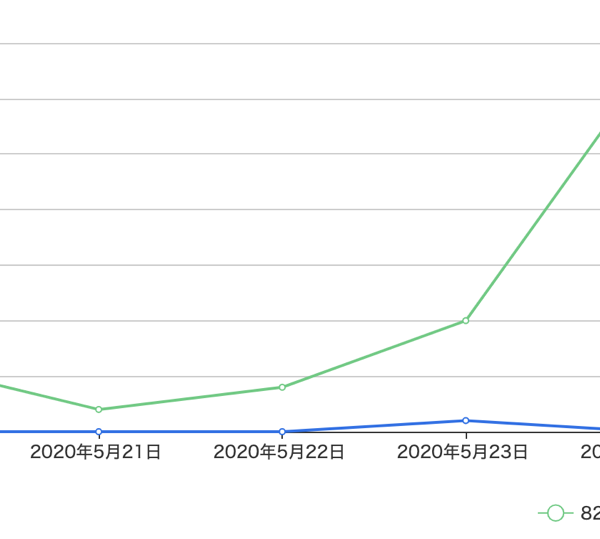
COVID-19 and "Humanization of Technology"
Behind the “humanization of technology” as the founding philosophy of the Kyushu Institute of Design is an urgent need for the appropriate use of science and technology for the realization of people’s well-being in order to solve the various social problems associated with the rapid economic growth. Today, fifty years later, we are facing serious social issues brought about by a pandemic, and the important task is to overcome these difficulties and restore human life through “humanization of technology”. How did Kyushu University Faculty of Design Respond? Due to the impact of COVID-19, which has been spreading since the beginning of 2020, Kyushu University has decided to conduct all classes […]
Read More2021.7.2

New Ways of Living and Working with COVID-19 and Singularity
COVID-19 and Singularity The spread of the new coronavirus has led to a search for new ways of living and working. We were forced to take online lessons at Okayama Prefectural University. When thinking about new lifestyles and design, we had a chance to think about the Singularity (Technical Singularity), the point at which artificial intelligence will be able to surpass human capabilities. If we are to reach the Singularity, would design survive? What do we need to do to survive? We believe that the jobs that require communication with people and the jobs of creators who create new things will have a high probability of survival. The face-to-face classes, […]
Read More2021.7.2
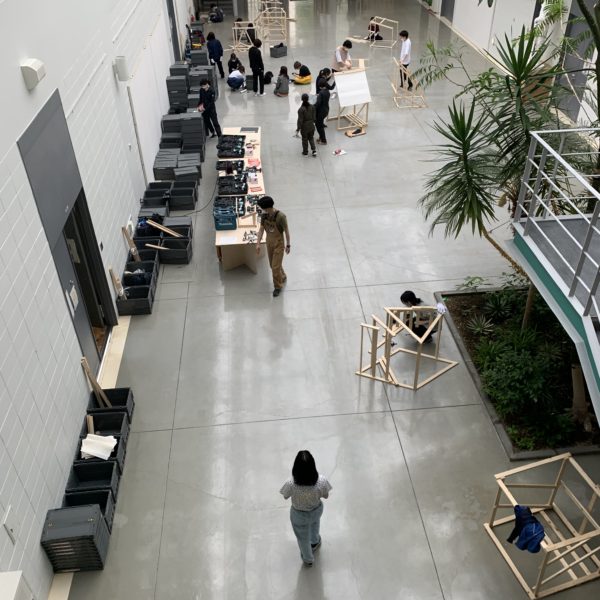
Campus Life Creation Month for New Coronavirus Response
The Faculty of Design, Sapporo City University has set up a new coronavirus-response campus life creation month (June 29 – July 31) so that students can safely spend time on campus for face-to-face classes, which have partially resumed in the latter half of the first semester. When students resumed school, the School of Design announced a strict principle: “No private conversations! Although it was not mandatory, it was a message from the Faculty of Design to encourage students to be very careful in their resumed university life. On the other hand, we also want student to enjoy this kind of life as creators, so we decided to hold a design […]
Read More2021.7.2
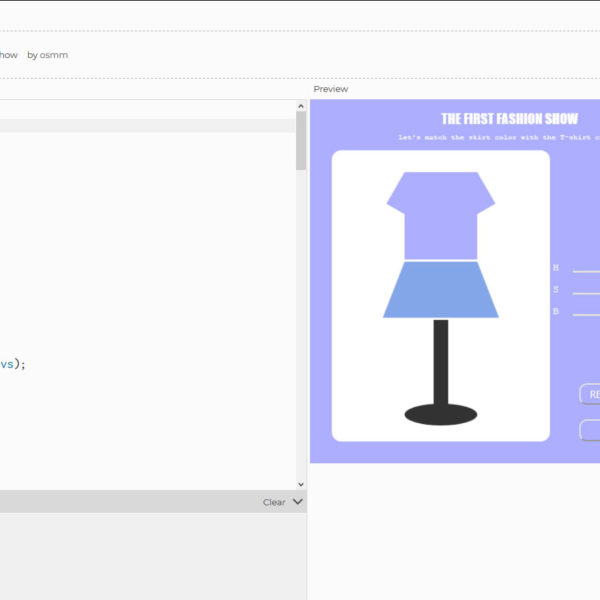
Approaches to Distance Learning in Product Design
At Chiba University, the start of classes was delayed to May 7 as a university-wide policy to prevent the spread of the new coronavirus. In addition, because some students may not have sufficient communication and computer environments, the university has instructed that classes not to be held in a simultaneous interactive format but held in an on-demand format, with audio and video materials uploaded in advance to the university’s class support system for students to view at their convenience. In response, the faculty members in charge, including part-time lecturers, had a discussion and concluded that while we should not abandon students who are not ready for the environment, we should […]
Read More2021.7.2

The Challenge of Covid-19 in the Department of Industrial Art
Due to the impact of Covid-19, which started in the latter half of February 2020, the seminars for each laboratory were the first to carry out online in a timely manner. At the Department of Industrial Arts (IA), faculty members and current students were already communicating with each other using iawiki (a wiki-style departmental information aggregation website, hereafter “wiki”) and Slack. Therefore, we decided to promote information sharing by thoroughly utilizing wiki and Slack at Corona College. On the other hand, to communicate information to new students, we prepared and mailed a separate form for students to register for the wiki and Slack. As a result, most new students could […]
Read More2021.7.2
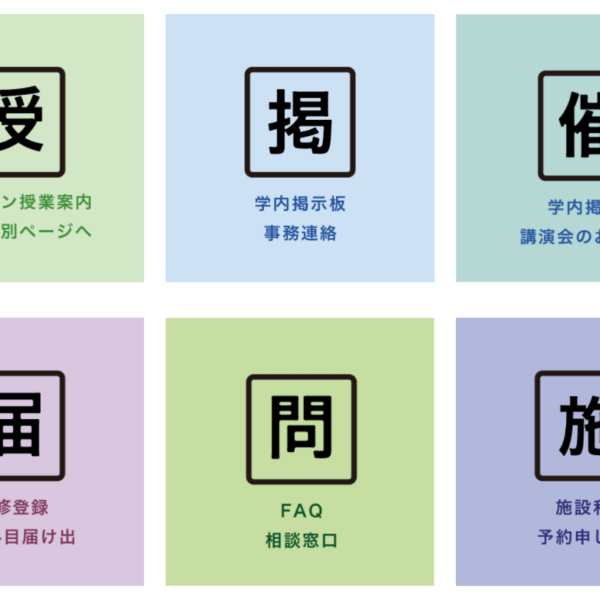
Kanazawa College of Art's "Coronavirus and New Lifestyle and Design" Initiatives
Introduction of Distance Learning Kanazawa College of Art has been promoting education under the motto “Think with Hands, Make with heart” in its educational guidelines, and has been placing great importance on small-group, face-to-face education. Although our university has kept a distance from distance education, the spread of COVID-19 has forced us to take a major step toward the introduction of online classes. Here I would like to mainly summarize the development of our distance learning system and the results of our preparations for the new semester, which supposed to start in early April 2020 and was pushed back to May 11, 2020, and a review of our current situation. […]
Read More2021.7.2
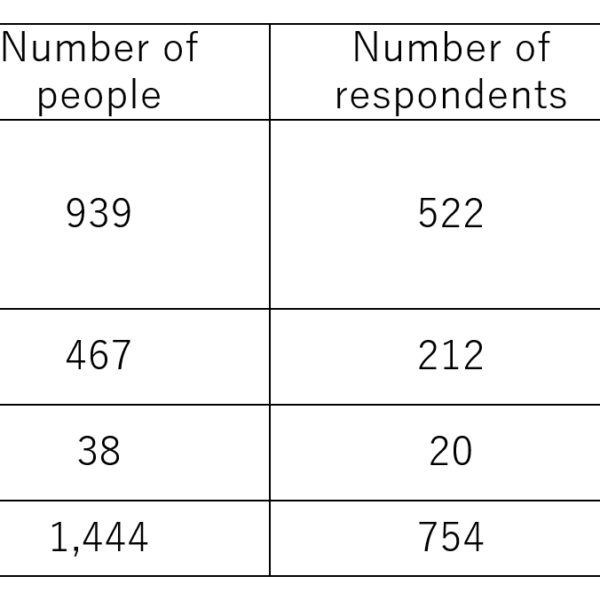
Effectiveness of the System in Distance Learning On April 17, 2020, the university announced a policy that all first semester classes will be conducted entirely by remote learning from May 11 to August 7, 2020. To make full use of the university’s information facilities, it was recommended that, as a rule, all faculties use the “manaba” learning support system for on-demand classes, and “PowerPoint” files with narration be used for viewing. However, seminar classes and other classes were also allowed in real-time interactive classes. When conducting real-time classes, the use of Microsoft Teams is recommended because all students can use “Office365”. The university, which has about 1,450 students, had only […]
Read More2021.7.2
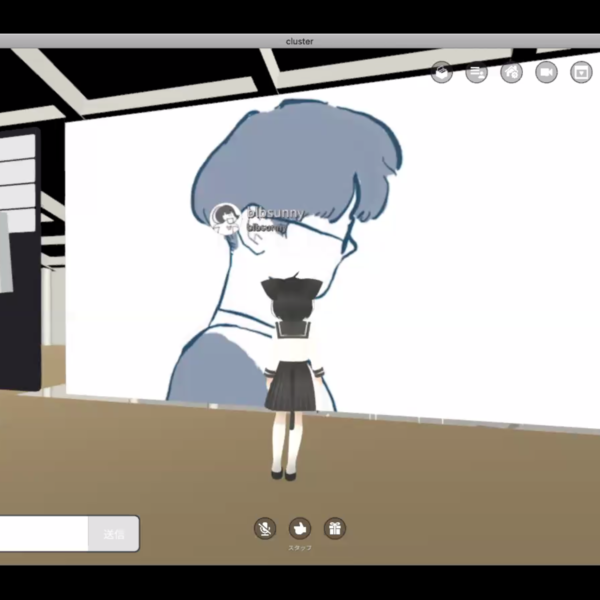
Many projects that were initially planned at the KYOTO Design Lab of Kyoto Institute of Technology were canceled or postponed due to the coronavirus. As part of its efforts to develop new ways of collaboration through remote workshops and lectures, an online workshop project, “(Re)generating Japan – speculating a new “new normal” after COVID-19” (https://www.d-lab.kit.ac.jp/news/2020/regenerating-japan/) was conducted. This project is an experiment in which the university, as a testing ground for society, seeks new models of education and practice, and new areas of activity. Using the “new lifestyle” proposed by the Ministry of Health, Labor and Welfare as a starting point, we invited participants of all nationalities and fields of […]
Read More2021.7.2
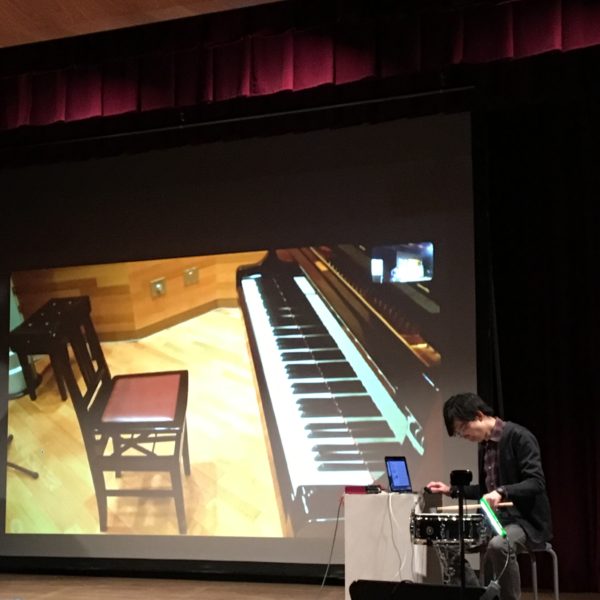
Hybrid Lessons Combining Face-to-Face and Remote Lessons
Nagoya City University Faculty of Design and Architecture has created a hybrid system of face-to-face and remote classes for the first semester of the 2020 academic year, with three different teaching patterns. In the first pattern, one class is divided into two classrooms, with a teacher giving a lecture in one of the classrooms and the lesson being streamed simultaneously via ZOOM in the other classroom through projection and loudspeaker. In the classroom without a teacher, a teaching assistant will check the communication status. In the second pattern, half of the students in a class take a face-to-face lesson in the classroom, and the other half take a “Zoom” class […]
Read More2021.7.2
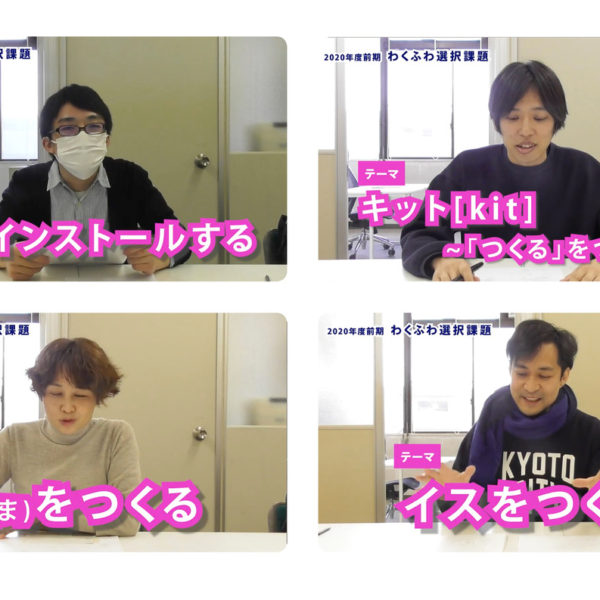
Due to the impact of COVID-19, Kyoto City University of Arts has decided to hold the first semester of 2020 classes remotely. The following is an introduction to the practical classes at the Department of Product Design under these circumstances. Since the year before last, the Product Design major has changed the curriculum of its practical classes to set their own goals and control the curriculum proactively. Specifically, we have shifted from the traditional approach of building up from basics to specialties to “elective assignments” where students can freely choose their assignments for each half year. Students in the second to the fourth year of the program will participate in […]
Read More2021.7.2
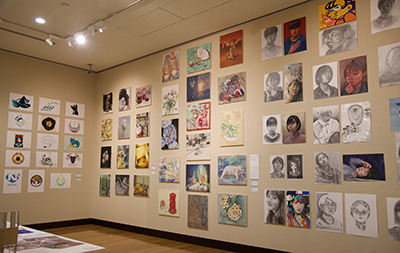
Distance Learning Using "Microsoft Teams
The first semester of the 2020 school year began with compliance to COVID-19 measures. Regular face-to-face lessons were suspended, which led to a major challenge of how to give concrete form to art education acquired through physical experience. It was an opportunity to rethink our fundamental relationship with art, which we usually take for granted. For the Year 1 and 2 students, in particular, it is essential to have a “place” where they can understand and acquire basic skills through dialogue with their teachers to have a sense of the distance from their subjects while struggling with the materials and confirming the production process. It was the first time for […]
Read More2021.7.2
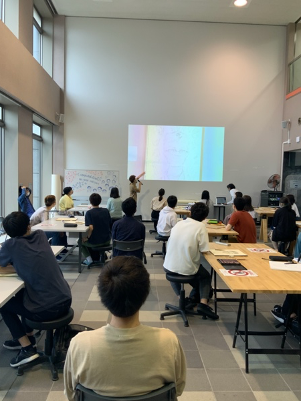
Rethinking Design Education Brought About By COVID-19
It is no secret that university education has been dramatically affected by the situation of the COVID-19 epidemic. Kagawa University has taken the same measures as other universities in Japan, such as canceling the entrance ceremony, postponing the start of classes, and banning face-to-face lectures. The faculty members are responding with emergency teaching methods in place of regular classes. They are also focusing on providing more support to students than ever before, including understanding their living and learning environment and providing psychological support. The state of emergency was lifted, and face-to-face classes have resumed in the seminar and practical training courses from June 18. However, online and on-demand remote lessons […]
Read More2021.7.2
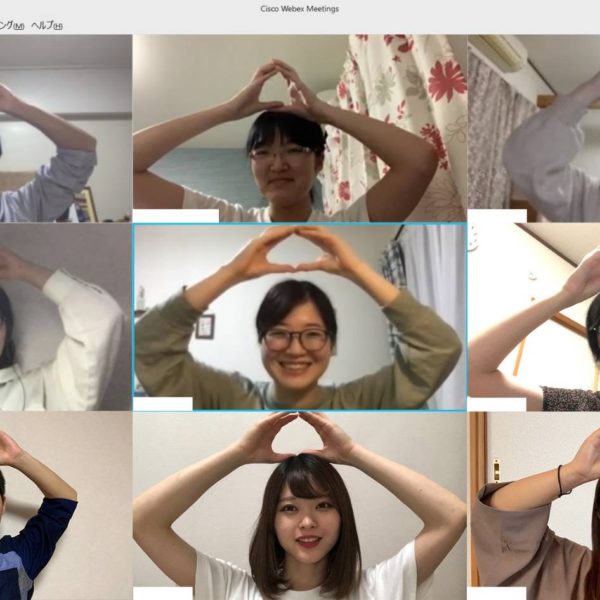
Students' Initiated Support Activities during the COVID-19 Disaster
At Saga University, we have prepared “Webex,” which supports synchronous remote classes, and “Office365 Teams,” which can be used for on-demand distribution of materials and project-based classes, to support classes during COVID-19. We also launched the “Online Class Portal” in March to support teachers. In addition, a support group called “Gechide no Tamago“, which was voluntarily set up by volunteer students of the Faculty of Art and Regional Design to provide online support to new students played an active role. “Gechide” is a Japanese acronym for “Art”, “Community” and “Design”. The support for using the tools of the online classes is created from the perspective of the students taking the […]
Read More2021.6.24
